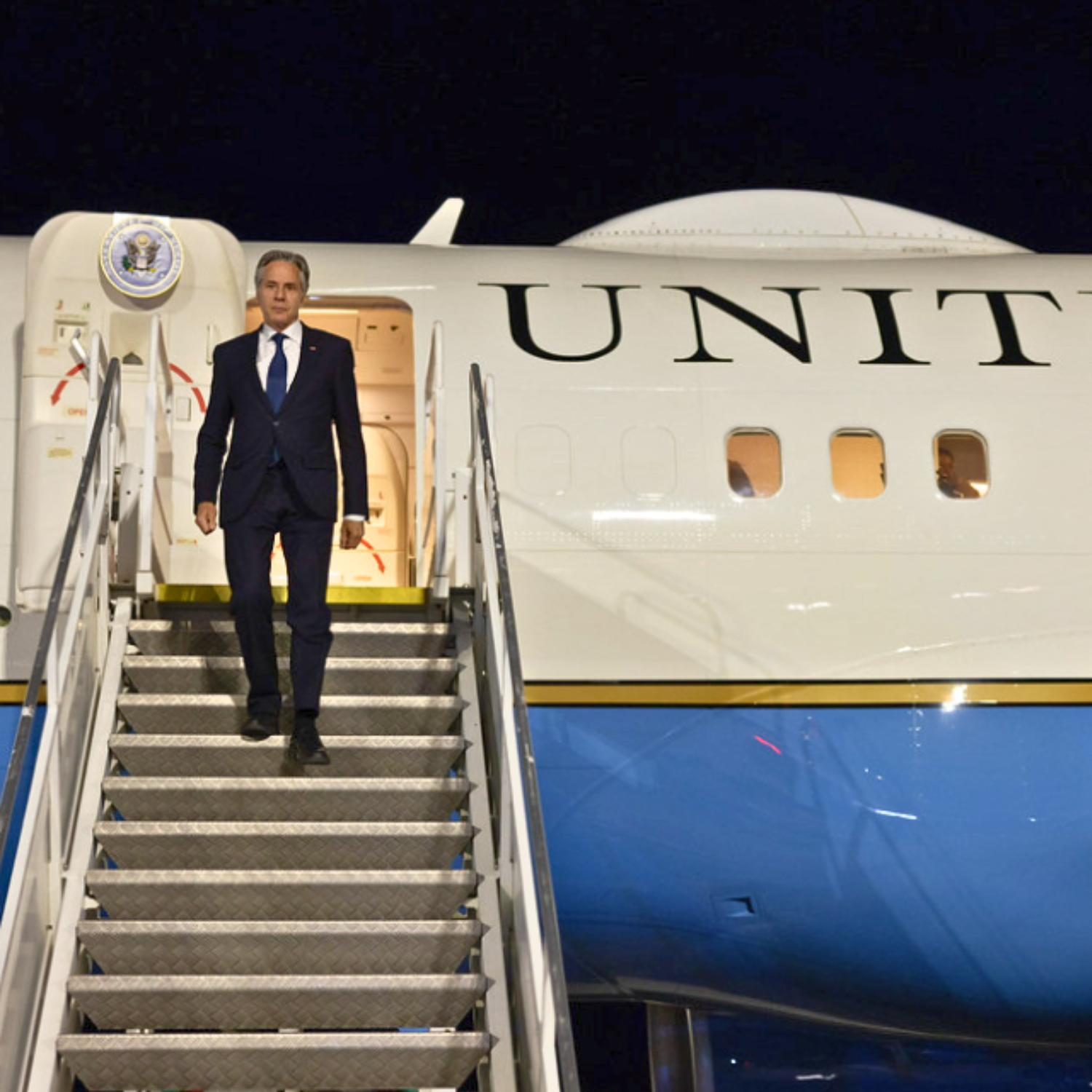United States, Germany, and France to Allow Weapons Sent to Ukraine to Strike Inside Russian Territory
Secretary Antony J. Blinken arrives at Vaclav Havel Airport Prague in Prague, Czech Republic, May 29, 2024. (Official State Department photo by Chuck Kennedy)
NATO Allies Relax Restrictions Amid Growing Tensions
Several NATO countries, including United States, Germany, and France have announced significant policy changes allowing Ukraine to use their military hardware to strike targets within Russian territory. This shift marks a notable escalation in the ongoing conflict and demonstrates increasing Western support for Ukraine's right to self-defense.
Germany's Policy Shift
Germany recently declared that it will permit Ukraine to use German-supplied weapons to attack targets inside Russia. This decision aligns with the recent actions of other NATO members, such as the United States, which has also relaxed its restrictions. German government spokesperson Steffen Hebestreit emphasized that Ukraine is entitled to defend itself under international law, including using supplied weapons to counter attacks originating from Russian soil.
This policy change follows sustained Russian artillery strikes on the city of Kharkiv, just 20 kilometers from the Russian border. Ukrainian officials, including President Volodymyr Zelenskyy, have argued that restrictions on using Western-supplied weapons have placed Ukrainian forces at a severe disadvantage. The allowance to strike inside Russian territory is seen as a necessary measure to enable Ukraine to adequately defend itself against ongoing aggression.
U.S. and Other NATO Members Follow Suit
The decision by the United States to grant Ukraine permission to use American weapons to strike Russian territory, specifically around Kharkiv, was confirmed by Secretary Blinken during the previously mention press conference in Prague, Czechia on May 31st 2024. This marked a reversal of previous U.S. policy and has set a precedent for other NATO countries to follow. NATO Secretary-General Jens Stoltenberg reiterated Ukraine's right to self-defense, emphasizing that this includes targeting legitimate military objectives within Russia.
He noted that two-thirds of NATO members are now on track to meet the goal of spending 2% of their GDP on defense. This milestone means that over 20 NATO allies are projected to meet this commitment soon. This development reflects a significant increase in defense investments among the alliance members, reinforcing NATO's collective security and defense posture.
Other NATO countries, including the Netherlands, Finland, and Poland, have expressed their support for this shift, acknowledging Ukraine's right to defend itself from attacks launched from Russian territory. This growing consensus among NATO members underscores a collective commitment to support Ukraine amid increasing Russian hostilities.
Diverging Opinions Within NATO
Despite the broader NATO support, not all member countries are in agreement. Italy, for instance, has taken a firm stance against allowing its weapons to be used to strike inside Russia. Italian Foreign Minister Antonio Tajani has stated that it is impossible for Italy to send troops to Ukraine or to permit the use of Italian weapons against Russia, citing constitutional constraints.
Implications for NATO and the Conflict
The decision by Germany and the United States to relax their restrictions is likely to have significant implications for the conflict. Ukrainian forces can now more effectively counter Russian attacks and defend critical areas near the border. However, there are concerns about potential escalation, as deeper strikes into Russian territory could provoke a more aggressive response from Moscow.
NATO leaders are set to meet in Washington this summer to celebrate the alliance's 75th anniversary and to reaffirm their support for Ukraine. Stoltenberg anticipates that many members will announce increased defense spending, further bolstering their commitment to the alliance and to Ukraine's defense.
Moving Forward
The recent policy changes by Germany, the United States, and other NATO members reflect a strategic shift aimed at empowering Ukraine to better defend itself against Russian aggression. While this move has garnered support from many within NATO, it also highlights the ongoing debate and differing perspectives within the alliance on how best to support Ukraine without escalating the conflict further. As the situation evolves, NATO's unified stance will be crucial in navigating the complexities of the war and maintaining international stability. For more detailed updates on international relations, military policies, and geopolitical issues, visit InfoDecon.Com.
Reference
Secretary Blinken holds a press availability in Prague, Czechia - 8:00 AM
